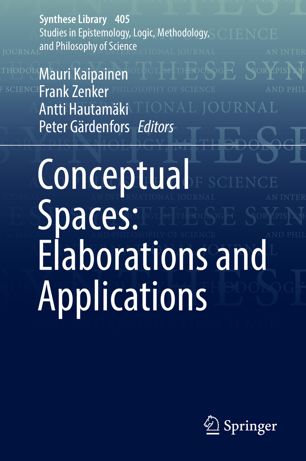

Most ebook files are in PDF format, so you can easily read them using various software such as Foxit Reader or directly on the Google Chrome browser.
Some ebook files are released by publishers in other formats such as .awz, .mobi, .epub, .fb2, etc. You may need to install specific software to read these formats on mobile/PC, such as Calibre.
Please read the tutorial at this link: https://ebookbell.com/faq
We offer FREE conversion to the popular formats you request; however, this may take some time. Therefore, right after payment, please email us, and we will try to provide the service as quickly as possible.
For some exceptional file formats or broken links (if any), please refrain from opening any disputes. Instead, email us first, and we will try to assist within a maximum of 6 hours.
EbookBell Team

4.4
22 reviewsThis edited book focuses on concepts and their applications using the theory of conceptual spaces, one of today’s most central tracks of cognitive science discourse. It features 15 papers based on topics presented at the Conceptual Spaces @ Work 2016 conference.
The contributors interweave both theory and applications in their papers. Among the first mentioned are studies on metatheories, logical and systemic implications of the theory, as well as relations between concepts and language. Examples of the latter include explanatory models of paradigm shifts and evolution in science as well as dilemmas and issues of health, ethics, and education.
The theory of conceptual spaces overcomes many translational issues between academic theoretization and practical applications. The paradigm is mainly associated with structural explanations, such as categorization and meronomy. However, the community has also been relating it to relations, functions, and systems. The book presents work that provides a geometric model for the representation of human conceptual knowledge that bridges the symbolic and the sub-conceptual levels of representation. The model has already proven to have a broad range of applicability beyond cognitive science and even across a number of disciplines related to concepts and representation.